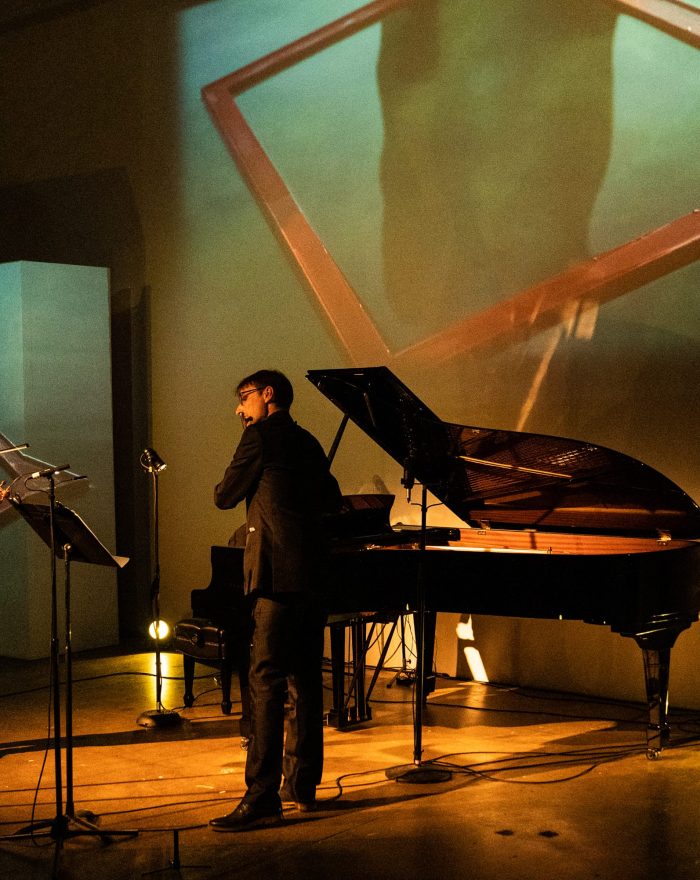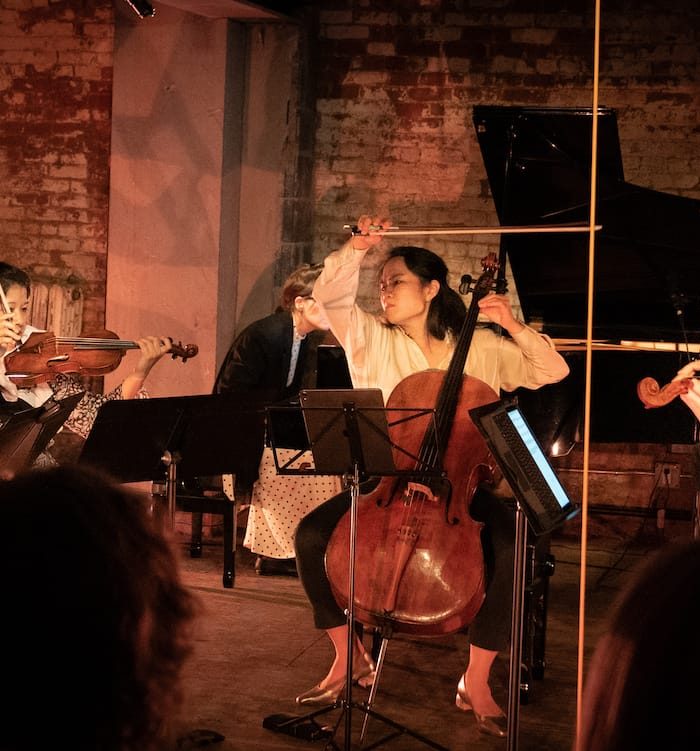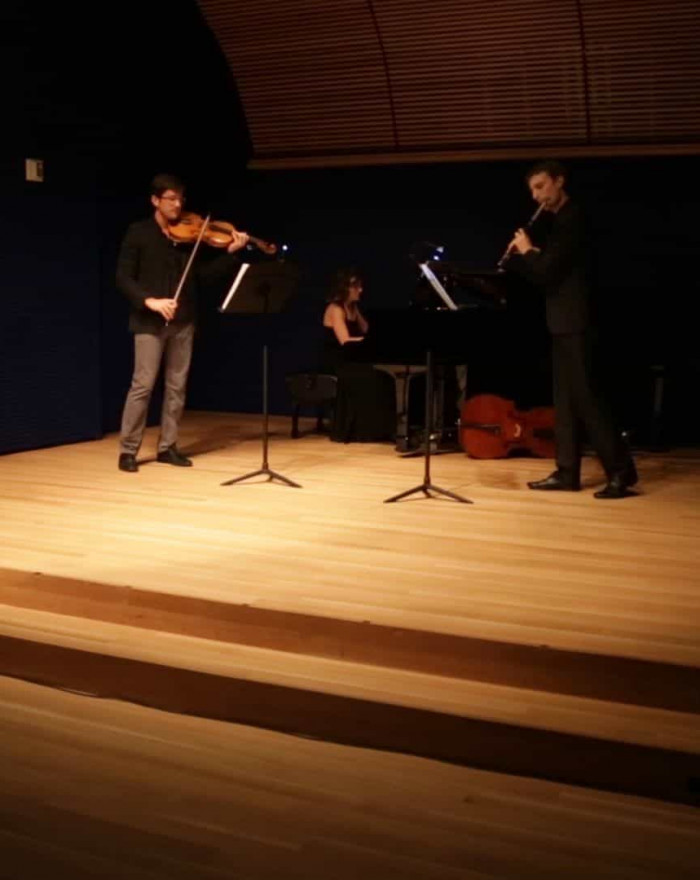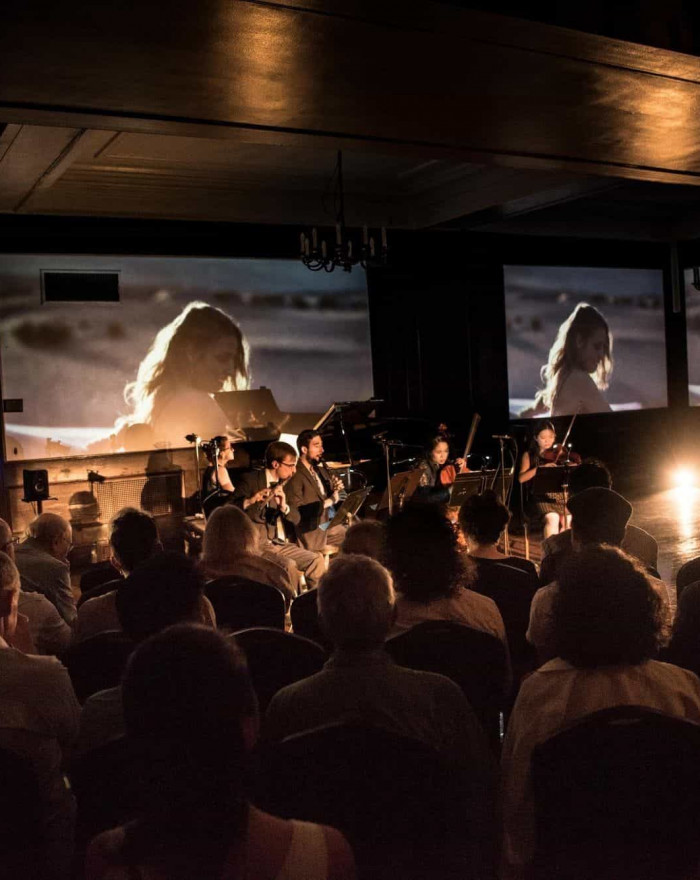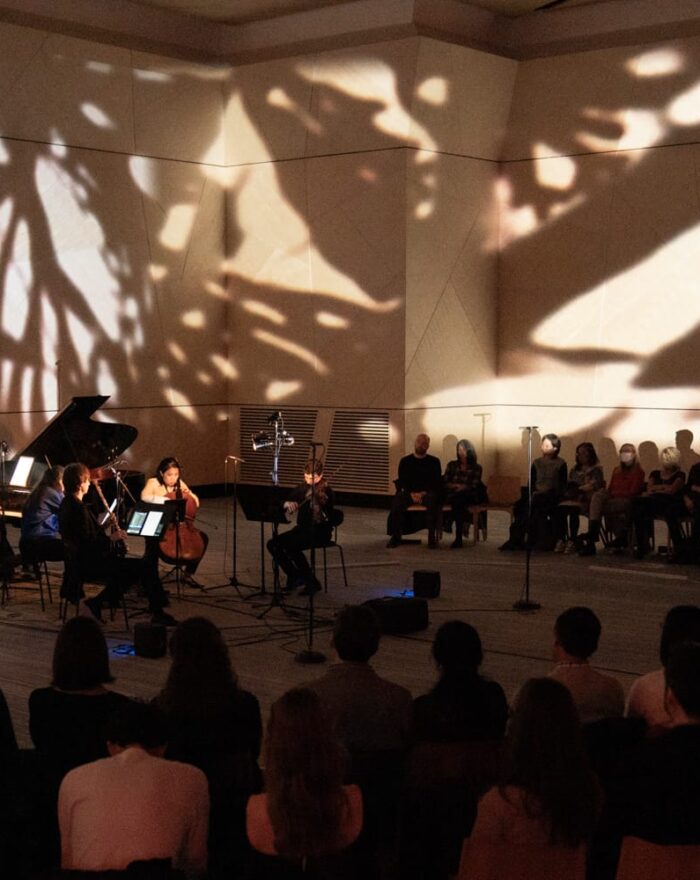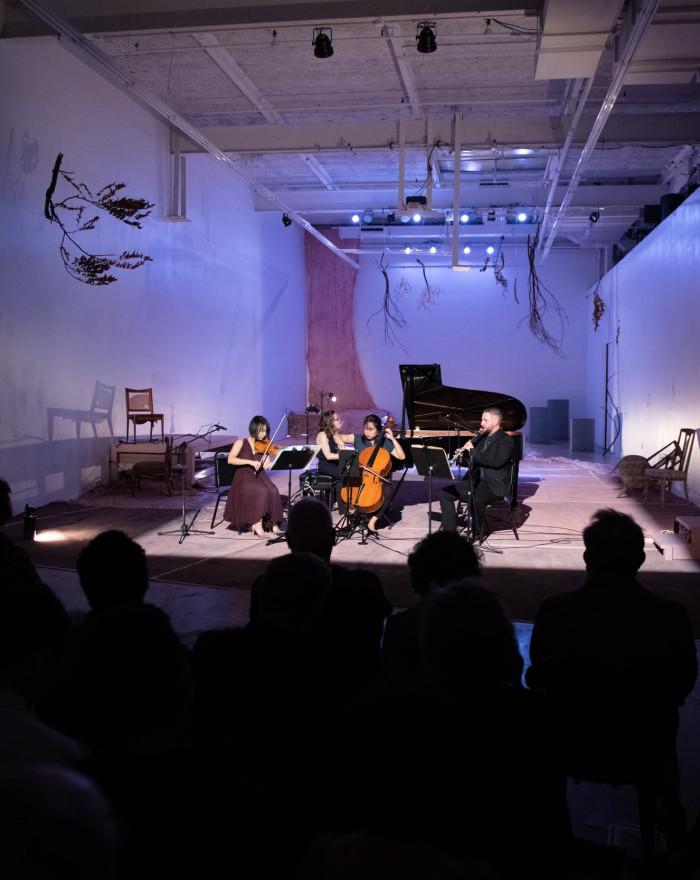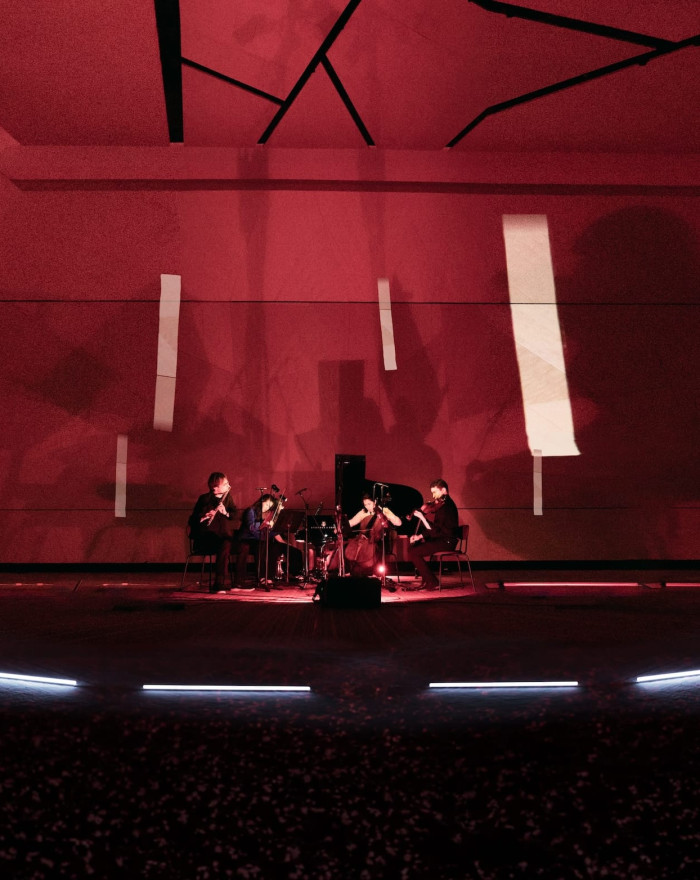Trio for Flute, Cello and Piano
Guillermo Laporta, fluteJosefina Urraca, pianoJulia Yang, cello
I. Largo misterioso – Allegro
Composer, diarist, raconteur – Ned Rorem holds a special place in American arts and letters. He has been described as “an essential, brilliant, and more than occasionally irascible American artist.” Rorem has been prolific with both words and music. “When I was young,” he has said, “it was a toss-up whether I would be a composer or a writer, so I became a little of both.” His 16 volumes of diaries, lectures, and criticism – beginning with his Paris Diary of 1966 – are witty, earthy, graceful, filled with strong opinions, and notoriously candid. Not surprisingly, given his love of both words and music, songs have been at the heart of his work as a composer. He has written hundreds of them – lyrical, deeply felt songs that reflect his exceptional gift for setting words to music. But songs are just the beginning. He has composed innumerable operas, symphonies, concertos, chamber works, and much more. Stylistically he has been called “an elegant anomaly” for the way he has stuck with tonality even during the years when atonal, complex Modernism was sweeping American music.
Rorem has said that the sound of the voice drives his work. “I always think vocally,” he says. “Even when writing for violin or timpani, it’s the vocalist in me trying to get out.” You can hear what he means in the Trio for Flute, Cello, and Piano, a work brimming with songlike lines. The four movements are filled with surprises – theatrical outbursts, seductive solos, high-speed gambols. The first movement belongs to the flute, an instrument that is a particular favorite of Rorem’s (he has described flute music as “song with the voice removed, with the flute as the voice”). Rorem bases the sensuous flute solo that opens and closes the movement on six notes, which are transformed in an exuberant, rhythmically quirky middle section.

